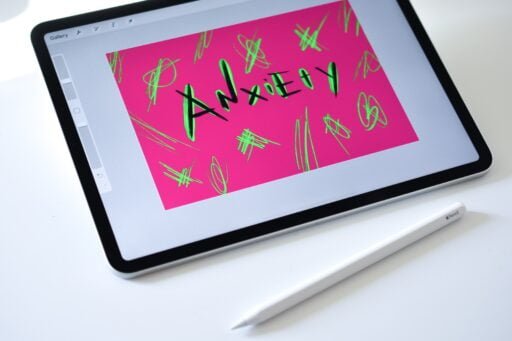Have you ever wondered how long panic attacks actually last? If so, you’re not alone. Panic attacks can be an overwhelming and terrifying experience, leaving you feeling trapped in a rollercoaster of intense fear and physical symptoms. However, understanding the duration of panic attacks is crucial in managing and coping with them effectively. In this article, we will explore the duration of panic attacks, shedding light on this debilitating condition and providing you with the knowledge and empathy you need to navigate through it.
How Long Are Panic Attacks
Panic attacks are sudden and intense episodes of extreme fear or discomfort that can last for a few minutes to several hours. These attacks can be overwhelming and debilitating, and they often come without warning. Understanding the duration of panic attacks is important for individuals who experience them and their loved ones, as it can provide insight into what to expect during an episode and how to manage it effectively.

Definition of Panic Attacks
Before delving into the duration of panic attacks, it is important to define what exactly a panic attack is. A panic attack is a sudden surge of intense fear or discomfort that reaches its peak within minutes. It is often accompanied by physical symptoms, such as rapid heartbeat, shortness of breath, chest pain, trembling, sweating, and a sense of impending doom or loss of control. Panic attacks can occur unexpectedly, or they can be triggered by specific situations, places, or objects.
Duration of Panic Attacks
The duration of panic attacks can vary from person to person and even from episode to episode within the same individual. On average, a panic attack can last for about 10 to 30 minutes, although some individuals may experience shorter or longer episodes. However, there have been cases where panic attacks have persisted for several hours.
The intense and distressing symptoms experienced during a panic attack can make it feel much longer than it actually is. It is important to remember that the duration of a panic attack does not necessarily indicate its severity or impact on an individual’s well-being.
Factors Affecting the Duration of Panic Attacks
Several factors can influence the duration of a panic attack. Understanding these factors can help individuals and their healthcare providers develop effective strategies to manage and reduce the impact of panic attacks.
1. Severity of the Panic Attack
The severity of a panic attack can affect its duration. More intense and severe panic attacks often tend to last longer, as it takes time for the body to recover and return to a calmer state. Similarly, mild panic attacks may resolve more quickly.
2. Individual Differences
Individuals can have different responses to panic attacks, including variations in their duration. Factors such as overall health, anxiety levels, and coping mechanisms can influence how long a panic attack lasts for an individual. It is essential to consider these individual differences when seeking treatment or support.
3. Trigger and Context
The trigger or specific context in which a panic attack occurs can impact its duration. Panic attacks triggered by specific situations or objects may subside once the triggering element is removed or the individual removes themselves from that environment. However, panic attacks that occur unexpectedly or have no identifiable trigger may persist for a longer duration.
4. Presence of Co-occurring Conditions
The presence of co-occurring conditions, such as anxiety disorders or other mental health conditions, can influence the duration of panic attacks. Individuals with underlying mental health conditions may experience longer and more frequent panic attacks. Addressing and managing these co-occurring conditions can be crucial in reducing the duration and frequency of panic attacks.
5. Use of Medications or Treatments
The use of medications or treatments can also impact the duration of panic attacks. Anti-anxiety medications, for example, may help alleviate the symptoms and shorten the duration of panic attacks. Similarly, therapeutic techniques like cognitive-behavioral therapy (CBT) can provide individuals with coping mechanisms to reduce the duration and intensity of panic attacks over time.
Managing Panic Attacks
While the duration of panic attacks can be distressing, it is important to remember that there are various strategies and treatments available to help manage and reduce the impact of these episodes. Here are some effective approaches:
1. Deep Breathing and Relaxation Techniques
Deep breathing exercises and relaxation techniques, such as progressive muscle relaxation or guided imagery, can help individuals regain control during a panic attack. These techniques promote relaxation and can shorten the duration of an episode by calming the body and mind.
2. Cognitive Behavioral Therapy (CBT)
CBT is a widely recognized therapeutic approach for managing panic attacks. It involves identifying and challenging negative thought patterns and beliefs that contribute to panic attacks. By learning new coping strategies and developing a more positive mindset, individuals can reduce the duration and frequency of panic attacks.
3. Medications
In some cases, medications may be prescribed to help manage panic attacks. Anti-anxiety medications or certain antidepressants can be effective in reducing symptoms and shortening the duration of panic attacks. It is important to consult with a healthcare professional to determine the most appropriate medication and dosage for individual circumstances.
4. Lifestyle Changes
Making certain lifestyle changes can also contribute to managing panic attacks and their duration. Engaging in regular exercise, maintaining a healthy diet, getting enough sleep, and avoiding substances such as caffeine and alcohol can all help reduce the frequency and intensity of panic attacks.

Seeking Professional Help
For individuals experiencing frequent or prolonged panic attacks, seeking professional help is highly advisable. Mental health professionals can offer valuable guidance, support, and treatment options to help manage panic attacks.
1. Finding a Therapist
When seeking professional help, finding a therapist who specializes in anxiety disorders is crucial. A therapist with experience in treating panic attacks can provide the necessary support and interventions to address the duration and impact of these episodes.
2. Psychiatrist or Psychologist?
Determining whether to see a psychiatrist or psychologist depends on the individual’s specific needs and preferences. Psychiatrists are medical doctors who can prescribe medications, while psychologists focus primarily on psychological interventions like therapy. Depending on the severity and complexity of panic attacks, a combination of both approaches may be recommended.
3. Treatment Options
Treatment options for panic attacks may include therapy, medication, or a combination of both. Cognitive behavioral therapy (CBT), exposure therapy, and mindfulness-based therapies are commonly used approaches. Medications such as selective serotonin reuptake inhibitors (SSRIs) or benzodiazepines may also be prescribed based on individual needs and circumstances.
4. Support Groups and Resources
Seeking support from individuals who have experienced or are experiencing panic attacks can be immensely beneficial. Joining support groups or participating in online forums can provide a sense of community and understanding, while also offering practical tips and strategies for managing panic attacks.
In conclusion, panic attacks can vary in duration, with some lasting only a few minutes and others persisting for several hours. The severity of an attack, individual differences, triggers and context, co-occurring conditions, and the use of medications or treatments can all influence the duration of a panic attack. However, there are numerous effective strategies and treatment options available to manage panic attacks and reduce their impact. Seeking professional help, utilizing relaxation techniques, considering therapy or medication, making lifestyle changes, and finding support through support groups and resources are all important steps in managing panic attacks and their duration.